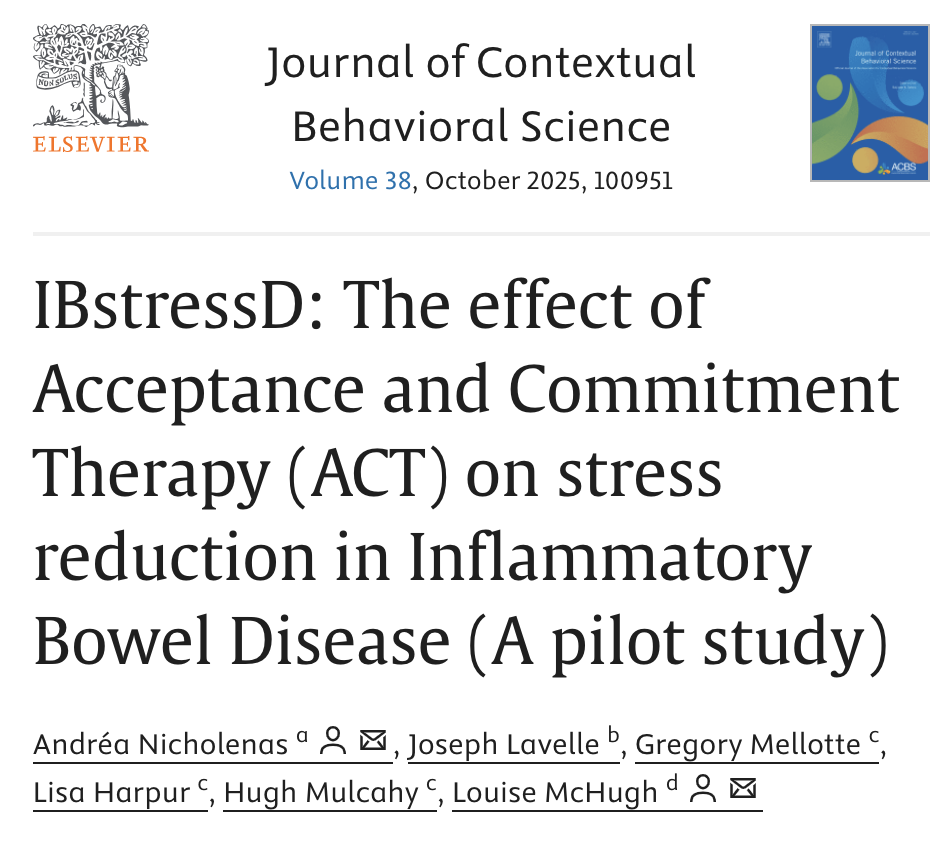Journal of Contextual Behavioral Science (JCBS)
Volume 38, October 2025
Authors
Andréa Nicholenas, Joseph Lavelle, Gregory Mellotte, Lisa Harpur, Hugh Mulcahy, & Louise McHugh
Key Findings
- A smartphone-based ACT intervention reduced stress in IBD patients.
- Single-Case Experimental Design showed consistent stress reduction (median −2).
- Findings support digital ACT as a supplementary treatment for IBD management.
- Results highlight the potential of telehealth for chronic health conditions.
- Study underscores feasibility and need for larger-scale research on digital interventions.
Abstract
Background
This pilot study assessed the feasibility of Acceptance and Commitment Therapy (ACT), delivered through a smartphone app, Psychflex, for reducing stress in patients with Inflammatory Bowel Disease (IBD). Considering the significant burden posed by IBD to physical and psychological functioning and the prevalence of comorbid stress as a potential contributor to disease activity, the inclusion of psychological interventions in the treatment process has become increasingly important.
Method
This study uses a Single-Case Experimental Design with three individuals diagnosed with IBD who were experiencing moderate to severe IBD-related stress. Over a period of 25 days, participants were exposed to ACT content daily via Psychflex, a smartphone application, which also measured the level of reported stress using a standardised likert-based stress scale at baseline and post-intervention.
Results
These results show a significant decrease in the stress levels of all participants. According to the statistical analyses, improvements in stress happened consistently, with a median stress reduction of −2, which is p < .0001.
Discussion
Despite difficulties regarding participant recruitment and sample size, the results tentatively show that ACT delivered via a smartphone might prove to be an effective supplementary treatment for IBD patients. These findings give credence to the potential of digital interventions for facilitating greater accessibility to treatment and day-to-day management of chronic health conditions. Future research could study the effect across multiple hospitals and contexts.
